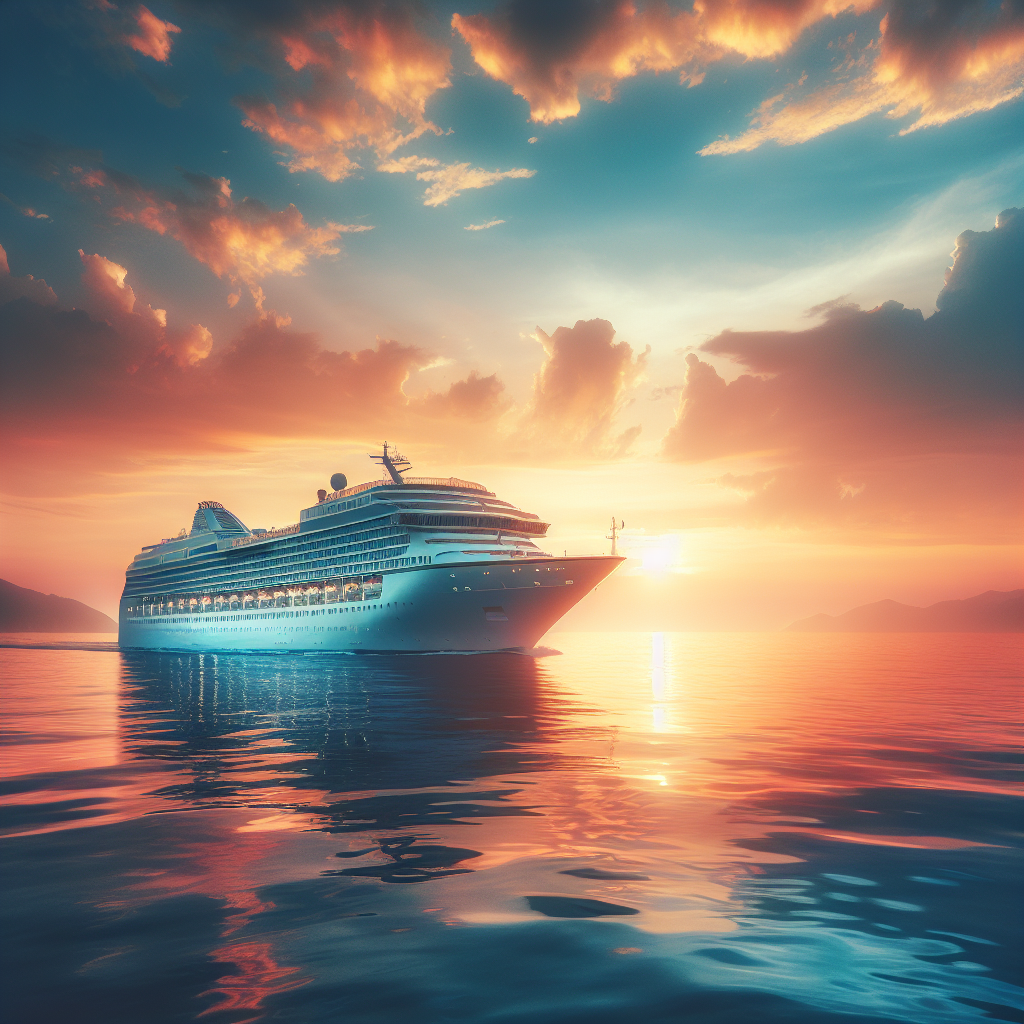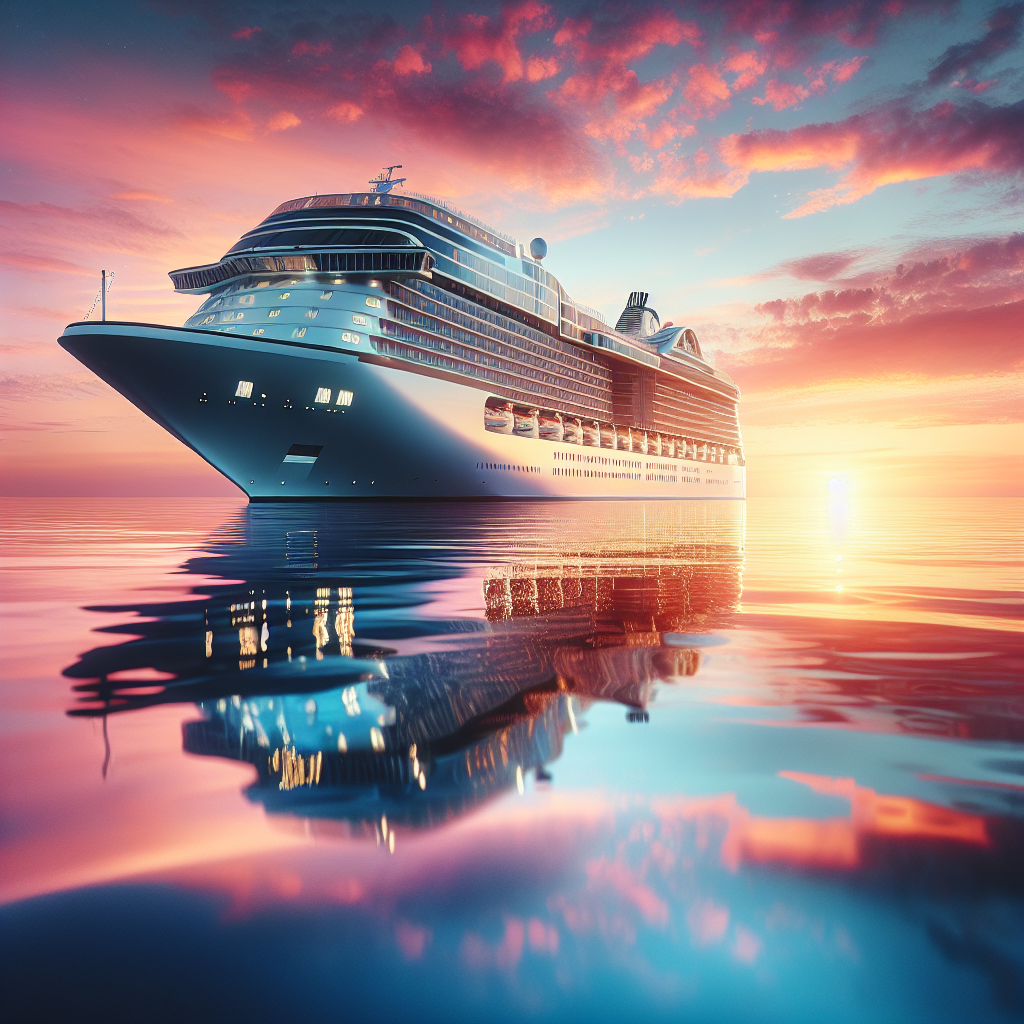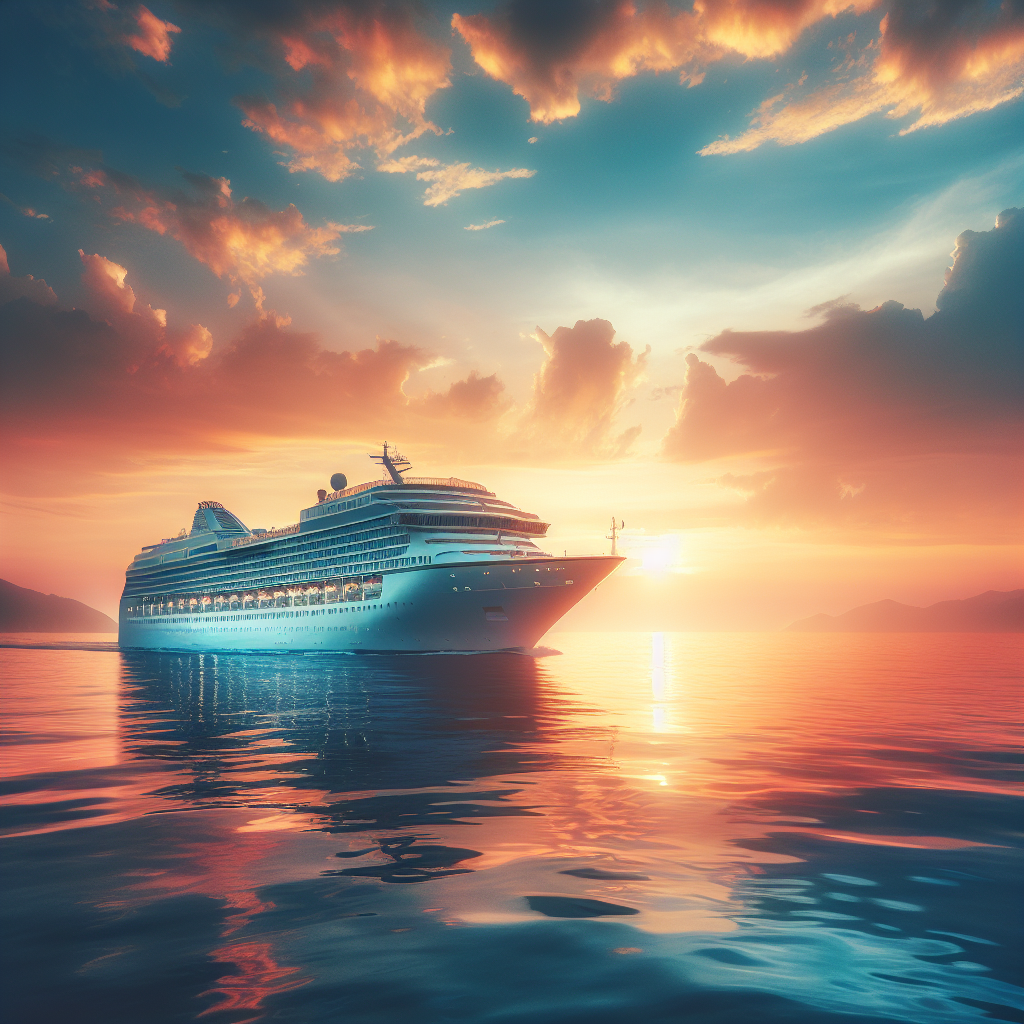If you’re one who finds yourself constantly yearning for the open seas, the stunning sunsets on the horizon and the unique adventure that each port holds, you may be wondering if you have developed an addiction to cruising. In this article, we unravel the fascinating, albeit slightly peculiar, phenomenon of cruise addiction. With an exploration of experiences shared by self-confessed cruise addicts to insights from psychologists, this engaging read will surely captivate anyone drawn to the mesmerizing call of the ocean.

Understanding the Concept of ‘Cruising Addiction’
As you plan your next leisure trip, it’s worth taking a pause and consider the concept of ‘cruising addiction.’ You might wonder if this term refers to an obsession with long voyages across the ocean or a fondness for going on cruise ships. It’s a complex phenomenon that intertwines passion, obsession, and psychological factors.
Defining Addiction in the Context of Travel
Addiction, in the context of traveling, infers to the strong compulsion to repeatedly engage in travel-related experiences, despite the negative impact they may have on your personal, financial, and social life. Frankly, differentiating addiction from a simple passion for travel isn’t always clear-cut. Here, the key lies in understanding the damaging effects that this persistent urge to cruise creates.
The Psychological Allure of Cruising
Why are people lured towards cruising? Well, cruising offers unparalleled opportunities for relaxation, adventure, socialization, and cultural exploration. The charm of sailing across the sea, exploring new lands and enjoying a plethora of amenities can elicit a strong desire for more, which sometimes, may develop into an unhealthy craving.
Differences Between Cruise Addiction and Passionate Travel
Passionate travel refers to a deep-rooted love for exploring the world. It’s largely a positive and healthy activity. Conversely, cruise addiction is marked by an obsessive tendency to go on cruises, often leading to financial stress, health concerns, and neglected personal responsibilities. It’s more about chasing the ‘high’ of the cruising experience than cherishing the joy of travel.
Historical Perspective of Cruising
In order to better understand the rise of cruise addiction, it helps to explore the history of cruising.
Evolution of Cruising as a Popular Leisure Activity
Initially, cruising was primarily a mode of transport. With advancements in technology and the rise of the leisure industry, it has now evolved into an opulent way of vacationing. Lavish cabins, gourmet dining, world-class entertainment, and stops at exotic locations have all made cruising a favored leisure activity.
Timeline of the Cruise Industry Growth
The cruise industry has seen explosive growth since the mid-20th century, especially in the last couple of decades. The increasing trend of luxury cruising, family cruising, and theme cruises have contributed to its enormous popularity. The allure of cruising has also been fuelled by aggressive marketing campaigns featuring attractive deals and packages.
Shift in Demographics and Cruising Preferences
Once considered an activity for the rich and retired, cruising now appeals to a wider demographic. younger families, solo travelers, and adventure enthusiasts have all become part of the cruise vessel clientele. Preferences, too, have shifted over time, with an increased focus on experiences, wellness offerings, and eco-friendly cruises.
The Psychological Factors Behind Cruising Addiction
Now that we’ve established a solid background, Let’s delve into the psychological factors responsible for cruise addiction.
The Role of Dopamine in Experience-Seeking
Like any other addiction, the root of cruise addiction lies in the neurochemical changes in the brain. Cruising, being an exhilarating activity, triggers the release of dopamine, a neurotransmitter associated with pleasure. Your brain craves this ‘high,’ perpetuating the cycle of addiction.
Sense of Escapism and Psychological Relief
Many people see cruising as an escape from the mundane routines of life. Sailing away into the sunset, away from reality, provides a psychological relief like no other. This sense of escapism can contribute to the addiction, luring you back to the ships time and again.
Social Connectivity and the Community Aspect on Cruise Ships
The feeling of belonging to a community of fellow cruisers provides the social validation and connectivity that many people seek. The friendships and bonds formed on these trips may fuel the urge to cruise more frequently.

Physiological and Behavioral Indications of Cruising Addiction
Recognizing cruise addiction isn’t always straightforward. Here are some of its physiological and behavioral indications.
Symptoms and Patterns of Addictive Behavior
Common symptoms of cruise addiction include a constant urge to plan the next cruise, neglecting other aspects of life, financial stress due to excessive spending on cruises, and restlessness or anxiety when off-board. These patterns mimic those found in other types of addictive behavior.
Impact of Cruising on Physical Health and Lifestyle
While indulging in gourmet meals and on-board indulgences can lead to weight gain and associated health issues, the lack of routine and over-indulgence in alcohol, may deteriorate physical health over time. Additionally, the constant travel can disrupt your lifestyle, impacting family relationships and work commitments.
Withdrawal: What Happens When Cruisers Are Off-Board
The reverse of the ‘high’ experienced during cruising is the ‘low’ experienced when off-board. This can manifest as restlessness, anxiety, or depression, akin to withdrawal symptoms seen in drug or alcohol addiction.
Economic Implications of Cruising Addiction
Untamed cruise addiction can make a significant dent in your pocket. But it does not stop at personal finances.
Financial Investment and Ongoing Expenditures of Cruisers
The sheer investment in booking cruises, coupled with on-board spending, can amount to considerable expenses. This often leads to financial stress, especially if you’re living beyond your means to fund your cruising habit.
Cruise Industry’s Reaction to Repeat Customers
From a commercial perspective, repeat cruisers fuel the growth of the cruise industry. Hence, the industry strategizes to attract and retain these customers with loyalty programs, exclusive offers, and personalized deals.
Personal Financial Management Amongst Cruise Addicts
People dealing with cruise addiction may find their financial stability rocked. High credit card bills, depleted savings, and potential debts are common, signaling the need for better financial management and possibly, professional help.
Sociocultural Aspects of Cruise Addiction
Cruise addiction is more than a personal struggle. It’s interwoven with sociocultural fabric, reflecting broader societal patterns and cultural preferences.
Peer Influence and Group Dynamics
Peer pressure or wanting to fit into certain social groups may cause you to cruise more than you can afford comfortably. Moreover, being part of a community of cruise enthusiasts could reinforce the behavior, making it harder to break the cycle.
Cruising as a Status Symbol and Cultural Phenomenon
Cruising is often perceived as a status symbol, representing high living standards or a certain “jet-set” lifestyle. This cultural phenomenon can add another layer of complexity to cruise addiction.
The Impact of Cruising Trends on Society at Large
As cruising becomes increasingly popular, it influences societal norms and behaviors. This could potentially normalize cruise addiction, making it harder for addicts to recognize their problem and seek help.
Testimonies and Case Studies
Testimonies and case studies bring to light the real-life implications of cruise addiction.
Personal Accounts from Self-Identified Cruise Addicts
Cruise addicts often describe their experience with an obsessive urge to be on the cruise, disregarding their finances, health, and other commitments. These personal accounts offer an eye-opening view of how deeply cruise addiction can affect one’s life.
Interviews with Family Members and Friends of Cruise Enthusiasts
Interviews with family and friends of cruise addicts reveal the toll on relationship dynamics, financial stability, and overall wellbeing. They paint a picture of the collateral damage cruise addiction potentially causes.
Rehabilitation Stories – Recovering from Cruise Addiction
Despite the struggles, recovery from cruise addiction is a reality. Rehabilitation stories offer hope and help understand the process to overcome this addiction.
Medical and Therapeutic Perspectives on Cruise Addiction
Medical and therapeutic insights play a critical role in diagnosing and treating cruise addiction.
Expert Opinions on the Validity of Cruise Addiction
While debate continues over whether cruise addiction can be classified as a clinical condition, many experts agree that it has all the hallmarks of a behavioral addiction. These symptoms and behaviors deserve acknowledgement and treatment.
Therapeutic Approaches to Treating Experience-Based Addictions
Cognitive Behavioral Therapy (CBT) and Motivational Interviewing (MI) are commonly used therapies for addiction. They empower addicts to understand their triggers, change their thought patterns, and develop coping strategies.
Preventative Measures and Advice from Health Professionals
Prevention is always better than cure when it comes to addiction. Experts recommend exercising self-control, setting travel budgets, regular breaks from cruising, and nurturing hobbies apart from cruising.
Comparative Analysis with Other Forms of Addiction
Cruise addiction shares several traits with substance abuse, gambling, shopping, and digital addictions.
Similarities and Differences with Substance Abuse
Like substance abuse, cruise addiction is driven by the desire to experience a rush of dopamine. However, cruise addiction doesn’t involve consumption of harmful substances.
Links to Gambling and Shopping Addictions
Like gambling or shopping addiction, cruise addiction is an experience-based addiction centered on the thrill of the activity rather than the acquisition of an item or substance.
Cruise Addiction vs. Digital and Social Media Addictions
Cruise addiction can also parallel digital addiction, especially with the endless entertainment options on board. The need for cruising can be similar to the constantly-connected mentality of social media users.
Future Outlook on Cruising and Addiction
In light of increasing awareness about cruise addiction, the future poses several challenges and opportunities.
Predicting Trends in the Cruise Industry
Consumer behavior patterns and new generations of travellers will drive trends in the cruise industry. Understanding these dynamics can help predict cruises’ future and potentially the prevalence of cruise addiction.
Advancements in Mental Health Support for Addictive Behaviors
With an ever-increasing focus on mental health, we can expect more robust support systems for addiction in the future, including cruise addiction.
Potential Regulations and Consumer Activism
In response to public health concerns related to cruise addiction, policy makers and activist groups might push for more regulations in advertisement, pricing, and access to the cruise experience.
In conclusion, while cruising is a delightful way to see the world, it is essential to be mindful of its potential to turn from an enjoyable activity into a damaging obsession. Awareness, balanced indulgence, and professional help when needed, can keep the seas of cruise addiction at bay.

